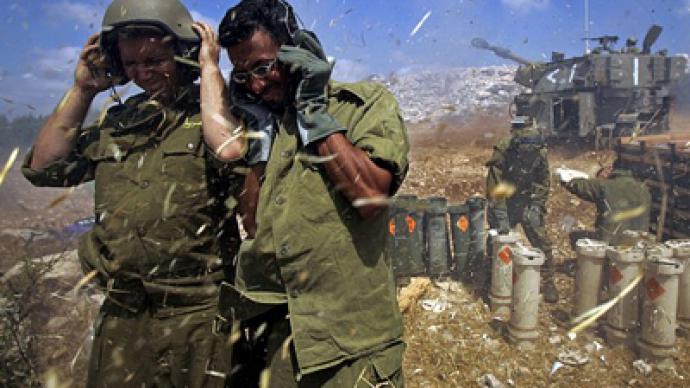Anger from Israel’s forgotten allies

Eleven years after the decades-long Israeli-Lebanon hostilities ended and the Jewish state retreated, thousands of its allies still cannot come to terms with the consequences. Some feel betrayed by those they fought with against a common enemy.
There is only one thing former intelligence officer Fawaz Najem dreams about – and that is to return home. But his home is southern Lebanon and he is stuck on the other side of the border, in Nahariya in northern Israel.“That’s my home. Five kilometers away,” he says, pointing at a house in the distance.Eleven years ago Fawaz was one of several thousand Christian Lebanese to flee with the Israeli army as it left Lebanon.For 18 years the Israelis had been fighting the Palestinian Liberation Organization and Hezbollah on Lebanese soil. The South Lebanon Army (SLA), a militia of Christians, Shias and Druze, who controlled the south of the country, helped them.“The South Lebanese army didn’t fight for Israel. Israel didn’t fight for the South Lebanese either. It was a meeting of interests between them and us,” explains Yossi Peled, head of an Israeli governmental body dealing with SLA members.But growing domestic pressure in Israel over the high losses suffered by the army finally convinced the government to withdraw, and it did so quickly in 2000.Aryeh Epstein was a soldier of the Israel Defense Force at the time and says the Lebanese soldiers who had helped Israel were left behind almost like sitting ducks.“If we, as soldiers, knew little about us leaving, they for sure knew even less. There was some sort of selection, the commanders were brought here, but I’m sure if you were a driver, not much was done for you,” he says.Some 7,000 SLA soldiers crossed into Israel. Those who were left behind were tried, jailed and sometimes killed as traitors.Fawaz Najem was one of those who got out alive. He had been working with the Israeli intelligence, helping to recruit Lebanese spies. “I did not want to run here, I wanted to die fighting. But the Israeli intelligence almost forced me to come. I was told ‘you know too much’. But the way they treat me now is a shame. They forced me to run away and now they spit on my face,” he says.Six months ago Amnon Loya, an Israeli volunteer, found Fawaz living in a tent on the street. He was hardly surviving on the few hundred dollars a month the Israeli government gave him.“I am ashamed that they are treating, not only the case of Fawaz Najem, 2,000 people that remained in the state of Israel. Why are the country and the state of Israel treating them like that?” he wonders in frustration.It is a charge the government is aware of. Although it says it is doing its best to help them by giving cash, education and in some cases – although not in Fawaz’s – a home.“We are paying already for 11 years. And I’m saying this not because I think we don’t have to – we must. But it’s very unique. The Jews that arrived from Europe, from Ethiopia, you name it, nobody got such a treatment,” Yossi Peled says.But still, that treatment was not enough to stop two thirds of those who came to Israel from emigrating elsewhere.“I feel betrayed. Those bastards sitting in the special intelligence forces have not given me any help since I’ve been here,” Fawaz Najem says.The fence at the Israeli-Lebanese border used to be known as “the good fence”. But in the last 11 years since the Israelis withdrew from Lebanon the situation has deteriorated. The good fence has since become the closed fence And through its bars Israel’s forgotten friends seem condemned to forever peek at the family they will more than likely never see again.













